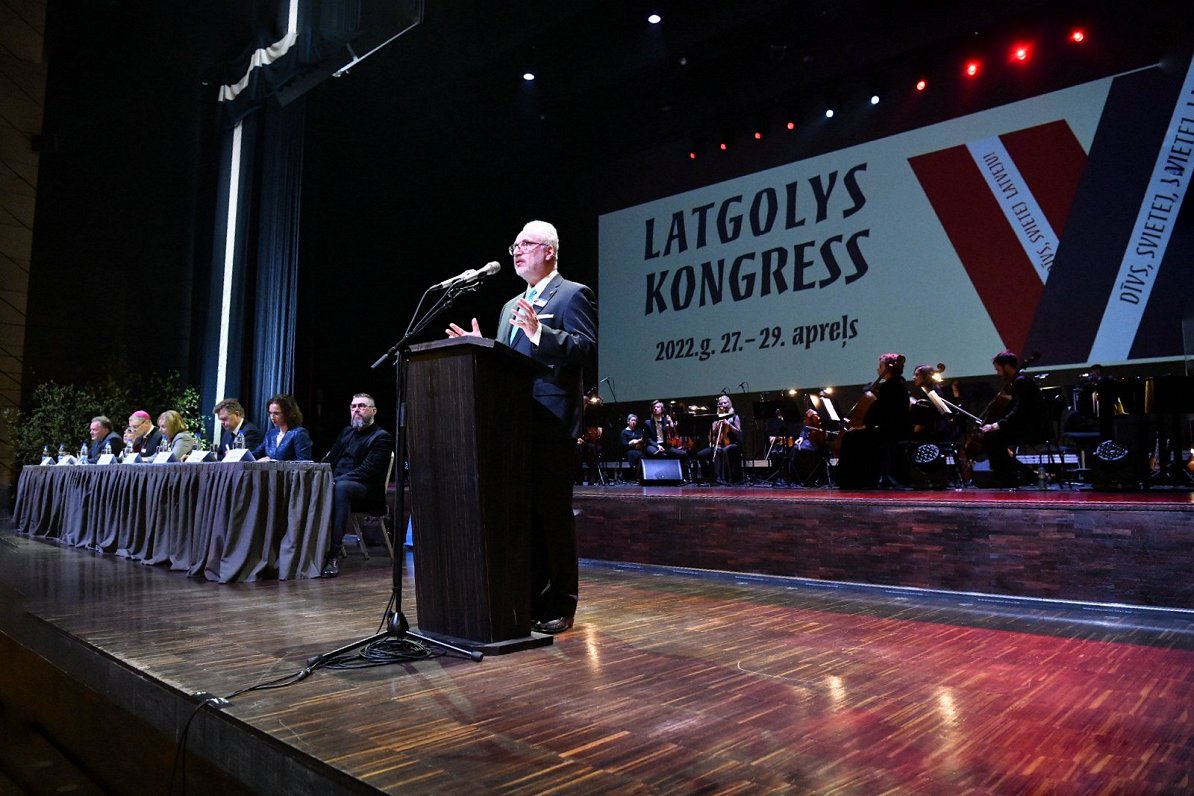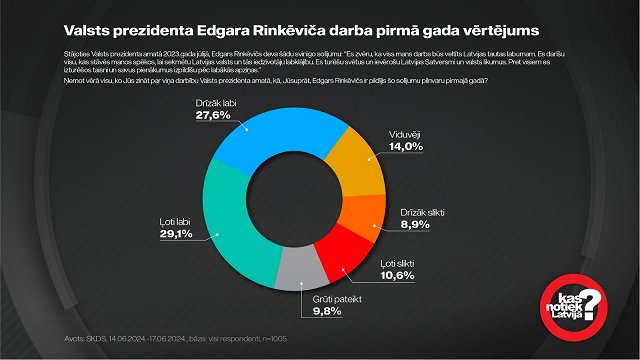The Latgale Congress considers the identity, culture, society and language of Latgale region, which has numerous distinct features of its own.
In his address, Levits encouraged wider use of Latgalian in both spoken and written forms, while maintaining that Latvian should remain the only official state language.
"I hope that the long-delayed issue of the use of the Latgalian language alongside the Latvian language in Latgale's public space - on road signs, place and street names, brands, communication and in any other context - will also be resolved.
"I was in Ludza today, and I really saw there that the street names are written in Latvian and Latgalian, which, of course, gives Latgale and Ludza this special sound, this special note, you might call it.
"I believe that the Latgalian language must be present in Latgale, visualizing and marking the Latgalian cultural space, which is a special component of the Latvian cultural space. Therefore, the Latgalian language must become more visible and more widely used in Latgale and elsewhere in Latvia.
"I have always called on Latgalians to speak Latgalian, teach the language to their children and continue to keep the Latgalian cultural space alive.
"Together we must take care that the Latgalian language, which has been nurtured and preserved in Latgale through the centuries, will survive and be heard in future generations.
"I hope that Latgalian language is taught in Latgale schools and that students accept this study option. I call on parents to make sure that their children take these lessons and take care of their Latgalian language in Latgale schools. The issue of schools is especially important for the sustainability of the Latgalian language," he said.
Levits' visit also included a visit to the grave of Francis Trasūns, a key figure in Latgalian identity.





























